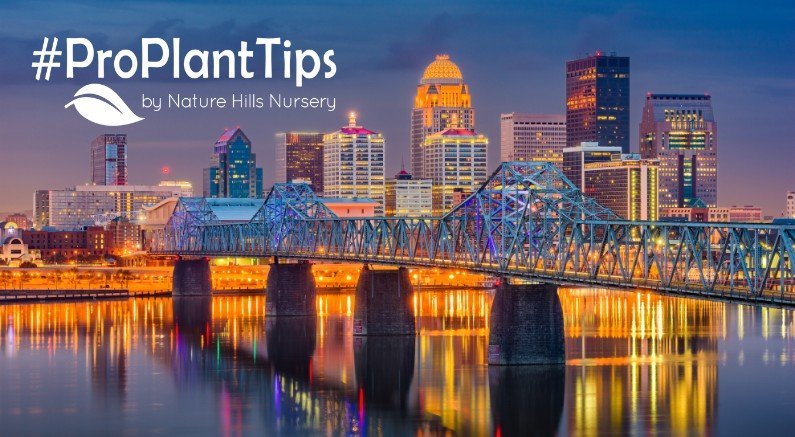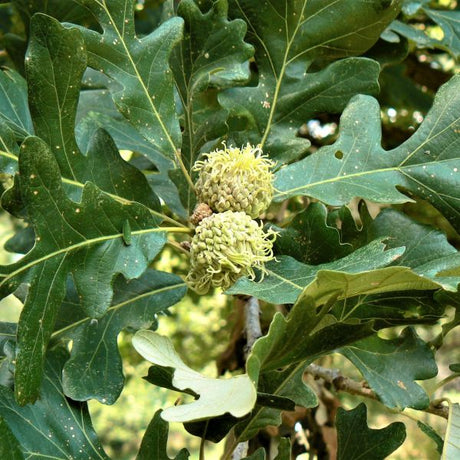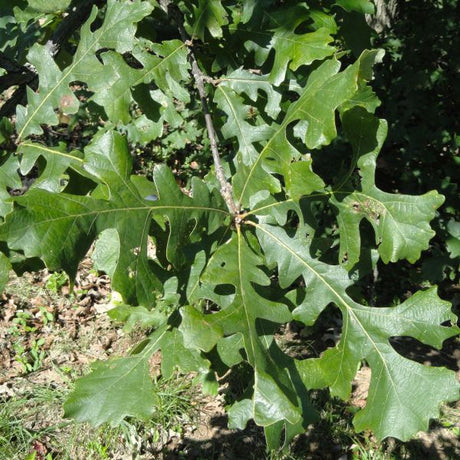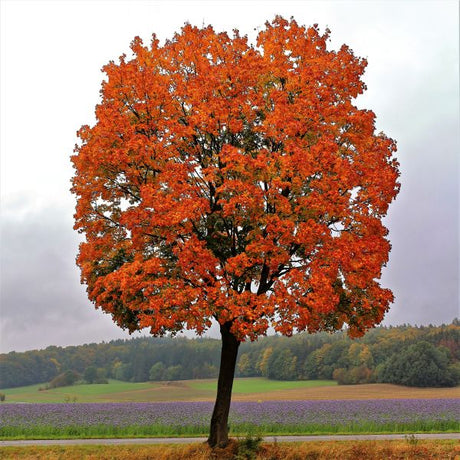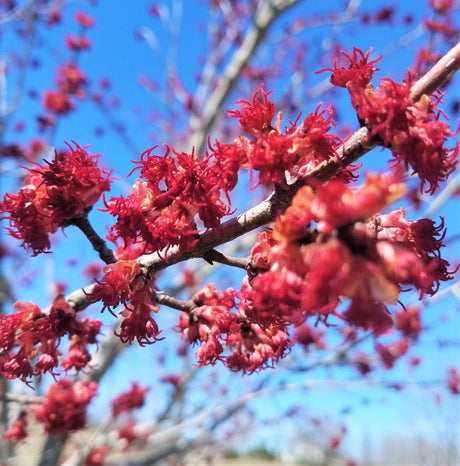
Louisville, known as the "Gateway to the South" and the "Derby City," is a vibrant city with a diverse landscape and rich horticultural history. Nestled along the Ohio River, Louisville's humid subtropical climate offers a wonderful opportunity to cultivate vibrant landscapes that can thrive throughout the seasons.
With a mix of rolling hills, fertile soils, and urban green spaces, Louisville provides an excellent environment for both backyard gardens and public landscapes. Nestled in USDA Hardiness Zones 6b to 7a, this area is ideal for selecting plants that can withstand hot summers, moderate winters, and occasional droughts. The right plant choices can boost your home's curb appeal and property value, creating inviting outdoor spaces perfect for relaxation.

Whether you are planting shade trees to combat the summer heat, vibrant flowers to attract pollinators, or edible plants for fresh, homegrown produce, knowing how to work with Louisville's unique climate and soil conditions is the key to a successful and thriving garde!
Understanding Louisville's Climate and Growing Conditions
Living in this Southeastern US State with four distinct seasons means choosing plants that can endure both heat and cold, and every alternating high and low in between. Summers may bring hot and dry spells, making drought-tolerant plants essential. Winters are usually mild but can surprise you with freezing snaps.
Therefore, resilient and adaptable plants, especially natives, are key to crafting a thriving, low-maintenance garden in Louisville, Kentucky.
Top Trees For Louisville Gardens
In addition to the Kentucky Coffee Tree, which is a tough native with lush shade and unique seedpods for late season interest, these native options are a sure bet:
- Yellowwood – A rare and elegant Kentucky native with graceful, cascading white flowers in spring, smooth gray bark, and brilliant golden fall foliage.
- Bur Oak – A majestic, slow-growing oak with massive, twisting branches and deeply ridged bark, known for its large acorns that support local wildlife.
- Eastern Redbud: A native tree that delights with stunning spring flowers and is well-adapted to local conditions.
- Red Maple: Known for its impressive fall foliage and support for local wildlife.
- Tulip Poplar: Offers quick shade and visual interest as one of the fastest-growing options.
Ornamental non-native options include statement trees like the fiery Autumn Blaze® Maple and the cascading Blue Chinese Wisteria Tree.
Evergreens Options
- Eastern Red Cedar – A hardy, drought-resistant conifer with fragrant, blue-green needles and blue berry-like cones that feed birds in winter.
- American Holly – A classic broadleaf evergreen with glossy green leaves and bright red berries, providing year-round beauty and wildlife support.
Recommended Shrubs For Louisville's Climate
Boxwood bushes are perfect for versatile hedging and borders, offering year-round appeal with minimal maintenance. Or choose these native options:
- Spicebush – A fragrant understory shrub with bright yellow spring flowers, aromatic leaves, and red berries that attract birds.
- Ninebark – A tough, adaptable shrub with peeling bark, white spring flowers, and deep purple or green foliage, great for erosion control and pollinators.
- Oakleaf Hydrangea: Provides vibrant summer blooms and beautiful autumn foliage.
- Rosebay Rhododendron (Rhododendron maximum): Native to Kentucky woodlands, this broadleaf evergreen has leathery leaves and soft pink summer blooms; thrives in shady, acidic, well-drained soils. Also known as Great Laurel.
Ideal Perennial Options For Louisville Landscapes
- Purple Coneflower, Pale Purple Coneflower, and Bee Balm (Wild Bergamot): These excellent perennials have long bloom periods and thrive in local soil, attracting pollinators.
- Celestial Lily – A delicate, deep blue wildflower with star-shaped blooms, thriving in open meadows and well-drained wetland soils.
- Wood Poppy – A rare woodland perennial with bright yellow flowers that add spring color to shady gardens. Or choose the Purple Poppy Mallow for a bright magenta wildflower.
- Blue-Eyed Grass – A delicate, grass-like perennial with small, star-shaped blue flowers, thriving in meadows, prairies, and woodland edges while attracting pollinators.
- Crested Iris – A low-growing, early-blooming native iris with soft lavender-blue flowers and intricate crests, perfect for shady woodland gardens and borders. The Copper Iris is a coppery-russet option that is a unique native!
Sustainable Landscaping Practices
To maximize your garden's potential, consider these sustainable practices:
- Utilize rain gardens to manage excess water and support moisture-loving plants.
- Apply mulch and compost to maintain soil moisture and enhance fertility.
- Employ integrated pest management to minimize chemical use by promoting beneficial insects.
- Plant native species to boost local biodiversity.
Tips & Tricks for Successful Gardening in Louisville, KY
- Choose Native & Heat-Tolerant Plants – Select Kentucky-native trees, shrubs, and perennials that thrive in humid summers, mild winters, and occasional drought conditions.
- Improve Heavy Clay Soil – Louisville's soil can be dense and compacted, so amend it with compost, aged manure, or sand to improve drainage and aeration.
- Use Mulch to Protect Plants – A 3-4 inch layer of mulch helps retain soil moisture, suppress weeds, and regulate soil temperature throughout the seasons.
- Plant in the Right Season – Spring and fall are the best times to plant trees, shrubs, and perennials, allowing roots to establish before extreme weather.
- Practice Smart Watering – Use drip irrigation or soaker hoses to deeply water roots and reduce evaporation, especially during hot summers.
- Encourage Pollinators & Beneficial Insects – Incorporate native flowers to attract butterflies, bees, and hummingbirds.
- Plan For Year-Round Interest – Mix evergreens, deciduous trees, and long-blooming perennials to ensure color and texture throughout the seasons.
- Use Raised Beds For Vegetables – Louisville's heavy rainfall can create drainage issues, so use raised beds for better soil control and productivity. Or create a Rain Garden instead!
- Be Aware of Frost Dates – Louisville's last frost date is typically mid-April, and the first frost arrives in late October, so plan plantings accordingly.
- Protect Plants From Deer & Rabbits – Use deer-resistant plants like Lavender and Black-eyed Susan, and consider natural deterrents for protecting young plants.
- Manage Lawn & Turf Wisely – Choose low-maintenance native grasses or replace traditional turf with clover, groundcovers, or meadows to reduce water usage.
- Combat Humidity & Fungal Issues – Louisville's humid climate can encourage fungal diseases like powdery mildew, so plant disease-resistant varieties and watch your spacing to provide good airflow.
Practical Maintenance Tips For Louisville Gardens
- Conduct soil tests in early spring to adjust nutrient levels, ensuring optimal plant health.
- Prune trees and shrubs at the appropriate time (old wood vs new wood) to encourage robust growth.
- Implement a systematic watering schedule utilizing rainwater harvesting to prevent overwatering and ensure plant adaptability during dry spells.
Community Resources and Educational Opportunities
Louisville is rich in gardening resources! Engage with your local County Extension Office for expert advice, or participate in community gardening events to share tips and plants with fellow gardeners. Emphasizing native plants is key to creating sustainable and resilient garden landscapes that flourish year-round.
Choosing a diverse blend of trees, shrubs, and flowers transforms your Louisville property into a picturesque, adaptable outdoor haven. Embrace these plant selections to cultivate a breathtaking landscape that offers year-long beauty and functionality.
Happy Planting!

